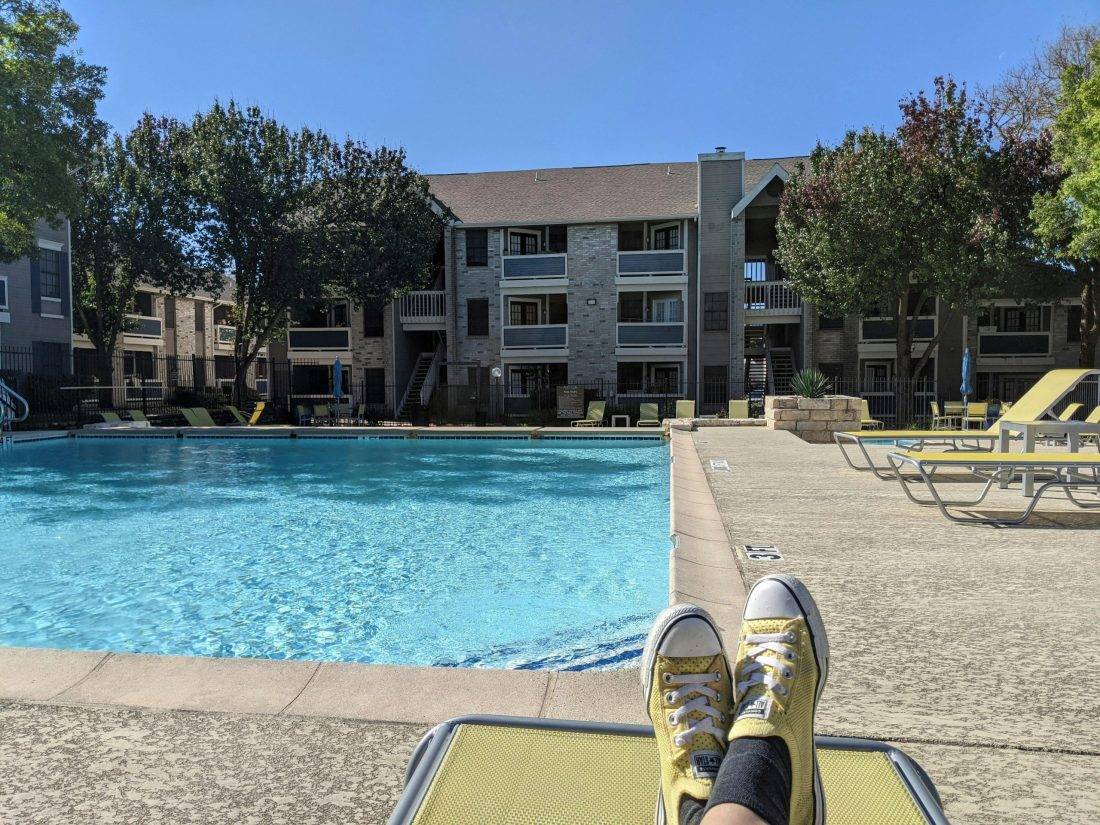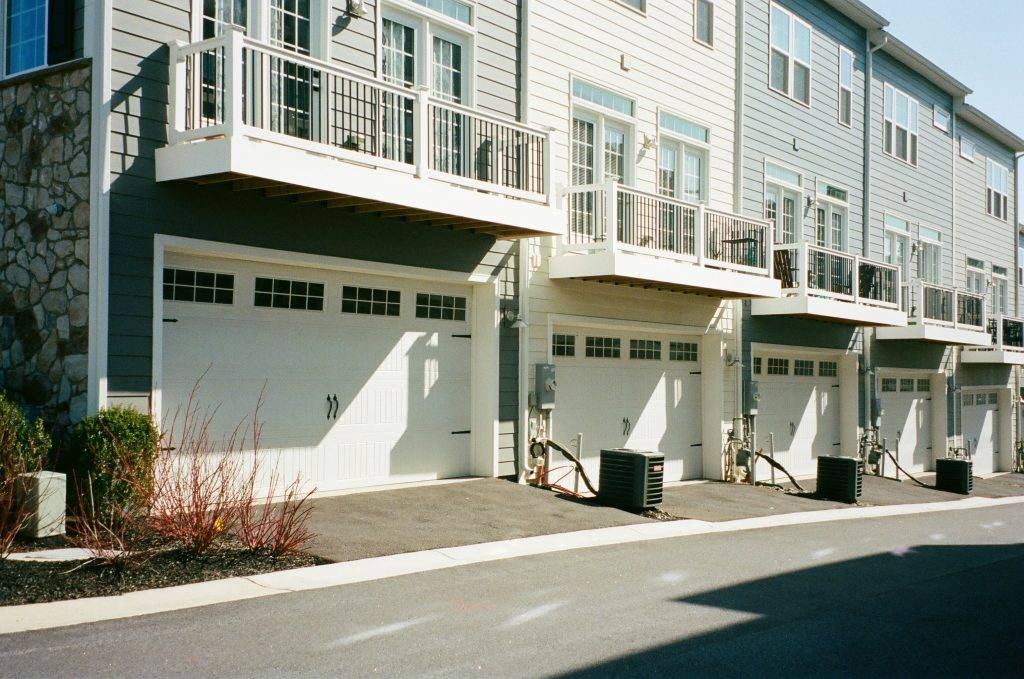Townhomes vs. Condos
When it comes to homeownership, the words townhome and condo are often used interchangeably — but they’re not the same thing. While both offer lower-maintenance lifestyles than single-family homes, their differences in ownership, fees, and responsibilities can make one a better fit depending on your lifestyle, budget, and long-term goals.
If you’re considering a move to Macon, Georgia, and weighing your options, understanding the difference between townhomes and condos will help you make the right decision for your next home or investment.

1. The Main Difference: Ownership
The biggest difference between a townhome and a condo comes down to what you actually own.
- Townhome: When you buy a townhome, you typically own both the interior and exterior of the unit — including the yard, driveway, and roof (depending on the community rules). Think of it as owning a single-family home that’s attached to others by shared walls.
- Condo: In a condominium, you own only the interior of your unit. The exterior, including the building structure, roof, and shared spaces like hallways and parking lots, are owned collectively by the condominium association.
In short: A townhome is like a house with shared walls. A condo is like an apartment you own.
2. Who Owns the Land Beneath?
Ownership of the land beneath your home is one of the most defining differences between a condo and a townhome — and it can affect everything from value to financing.
- Townhome Owners: In most townhome communities, the homeowner owns the land underneath their unit — sometimes including a small front or backyard. This land ownership gives townhomes a more “traditional homeowner” feel, similar to owning a standalone house. You’ll often see this reflected in the property deed, which will show both the structure and the lot.
- Condo Owners: With condos, ownership does not extend to the land beneath the building. Instead, each resident owns a share of the common property — including the land, the structure, and all shared areas — jointly with the other condo owners through the homeowners association.
This difference plays a role in property taxes, insurance coverage, and resale value. Because townhome owners own the land outright, their property values may rise or fall more like those of single-family homes. Condo ownership, on the other hand, is based more on the building’s collective value and the financial health of the condo association.
3. Fees and Maintenance
Both condos and townhomes usually have monthly or quarterly fees that go toward maintenance, but the type of maintenance covered can vary widely.
- Condo Fees: Condo associations generally handle all exterior upkeep — including the building, roof, landscaping, amenities, and even some utilities. These fees are often higher, but you’re paying for convenience and shared services.
- Townhome Fees: Townhome HOA fees are typically lower, since you’re responsible for maintaining the exterior of your own unit and your yard. The association usually maintains common spaces like roads, lighting, or small shared amenities.
In Macon, for example, some newer communities offer hybrid-style townhome developments with low HOA dues — perfect for those who want independence with minimal upkeep.
4. Layout and Living Style
Visually, townhomes and condos look and feel different.
- Townhomes: Usually built in rows, they often have multiple levels, private entrances, small yards, and sometimes garages. You’ll enjoy a bit more privacy and space, making them great for families or professionals who value independence.
- Condos: Typically single-level units within a multi-story building, condos are ideal for people who prefer a lock-and-leave lifestyle, often with shared amenities like gyms, pools, or clubhouses.
Townhomes tend to feel more like a house. Condos feel more like a community.
5. Lifestyle and Amenities
Amenities often play a key role in the condo vs. townhome decision.
- Condos: Often located in more urban settings, condos may offer amenities such as fitness centers, swimming pools, concierge services, gated entry or security, and shared lounges or event rooms — appealing to people who want convenience and community with minimal upkeep.
- Townhomes: While some townhome communities also feature pools or playgrounds, they’re more likely to emphasize private space and personal responsibility — a small yard, patio, or garage instead of shared luxury features.
6. Resale Value and Market Considerations
From a real estate investment perspective, both options can offer strong potential — but market factors matter.
- Condos often attract first-time buyers, downsizers, or investors seeking affordability and low maintenance. However, resale values can fluctuate based on the strength of the HOA and the financial health of the building.
- Townhomes often hold value better in suburban or growing areas like Macon and Middle Georgia, where buyers are drawn to the balance of affordability and personal ownership.
If you plan to sell in the future, a well-maintained townhome in a desirable neighborhood can sometimes appreciate more steadily than a condo in a high-fee building — but both have their place depending on demand and location.
7. Financing and Insurance Differences
Lenders and insurance companies view condos and townhomes differently.
- Financing: With condos, lenders often review the entire building’s financials, including the HOA’s reserve fund, insurance coverage, and owner-occupancy ratios. This can affect your loan approval process.
- Insurance: Condo owners typically carry an HO-6 policy, which covers the interior of the unit, while the building’s master policy covers the exterior. Townhome owners usually need full homeowners insurance, since they own both the inside and outside.
If you’re getting pre-approved for a mortgage, talk with your lender about whether the community is classified as a condo or townhome — it can impact your terms and timeline.
8. The Role of the HOA
Homeowners associations (HOAs) manage the community rules, maintenance, and shared spaces — but the level of involvement can differ dramatically.
- Condo HOAs manage nearly everything, from roofs to landscaping to amenities, meaning more control and higher fees.
- Townhome HOAs are typically less hands-on, leaving more autonomy (and responsibility) to homeowners.
Before buying, always review the HOA’s bylaws, budget, and rules. Understanding pet policies, rental restrictions, and maintenance responsibilities upfront can save future frustrations.
9. Which One Is Right for You?
Here’s a quick comparison:
| Feature | Townhome | Condo |
|---|---|---|
| Ownership | Interior & exterior | Interior only |
| Land Ownership | Owns the land beneath | Shared land ownership |
| Maintenance | Homeowner responsible for exterior | HOA handles exterior |
| HOA Fees | Typically lower | Typically higher |
| Layout | Multi-level, private entry | Single-level, shared entry |
| Amenities | Limited or community-focused | Often extensive |
| Insurance | Full homeowners | Interior (HO-6) |
| Privacy | Higher | Moderate |
| Lifestyle | Independent | Convenient & community-driven |
Ultimately, it comes down to how you want to live.
If you value privacy, space, and a sense of homeownership — a townhome may fit best.
If you prefer a simpler, maintenance-free lifestyle close to amenities, a condo might be perfect.
Featured Property

522 Cherry St UNIT 301, Macon, GA 31201
JoJo’s Take: Finding the Right Fit in Macon
In the Macon real estate market, both condos and townhomes play an important role. Downtown and near Mercer University, condo living can mean walkable convenience with modern finishes. Meanwhile, in neighborhoods like North Macon or Lake Wildwood, townhomes offer more room to grow while maintaining low upkeep.
Joanna “JoJo” Jones helps buyers understand the pros and cons of each so you can choose the lifestyle that fits your goals, budget, and future plans. Whether you’re investing, downsizing, or buying your first home — we’ll guide you through every step with clarity and care.
Final Thoughts
When it comes to Townhomes vs. Condos, neither is better — they’re just different. The right choice depends on how you live, what you value, and where you see yourself in the next five to ten years.
If you’re exploring options in Macon, Georgia, and want expert guidance on the local market, amenities, and community trends, contact Joanna “JoJo” Jones. Let’s find the right home — and lifestyle — for you.


